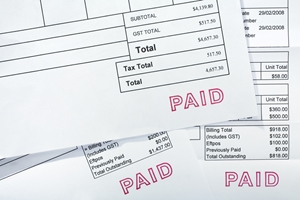A paper released by the government's Rethink tax campaign gives a new national perspective on the reasons behind taxing small businesses, as well as providing useful data about how much tax responsibility small business should have and why.
Tax compliance costs for SMEs total around $18 billion – 14 per cent of tax revenue.
The government understands that small to medium enterprises – defined as having 15 or fewer staff – are, well, small. They don't earn vast amounts and can't be expected to be influenced by the same policies which motivate huge companies.
The Australian Bureau of Statistics Economic Overview of SMEs points out that average earnings before interest and tax are a humble $47,000 for the average unincorporated SME. Fewer than 40 per cent of SMEs with less than $100,000 profit before tax carry any debt. This contrasts with larger companies who service debt regularly. SMEs make up 43 per cent of private non-financial employment and they tend to be most often the following types of business:
- construction
- professional
- scientific or technical services
- rental
- real estate services
- agricultural
- financial
- retail

Not your ordinary business – some complications
In an SME, a person can simultaneously be owner, employee, employer, and manager. The government has noted a trend since the early 2000s of using trusts as a business structure. Trust types include testamentary trusts, unit trusts and investment trusts. Businesses structured as discretionary trusts allow discretion about the size of distributions to the trust's beneficiaries. This allows the tax position of beneficiaries to be taken into account in making distributions to them. So SMEs are small and nimble but they typically don't experience strong growth until they use a company structure.
Does a small size mean a small tax burden?
A handful of provisions have been developed to make life easier for small businesses. It's essential that all small business operators know the tax options they're entitled to, which is why WMC offers a handy guide to tax facts. Businesses with a turnover of
- Less than $75,000 can choose not to register for GST
- Less than $20 million can report GST quarterly instead of monthly
- Less than $2 million can account on a cash basis
- Less than $2 million can pool most depreciating assets and write them off at a 30 per cent depreciation rate (15 per cent in first year)
Compliance with tax laws creates half to two-thirds of the total compliance burden on small business, and compliance costs for SMEs total around $18 billion, which is 14 per cent of tax revenue. Working out precisely how much tax should be paid by your small business is a service WMC is happy to offer. Detailed advice, business planning and tax assistance is just an email or call away.



